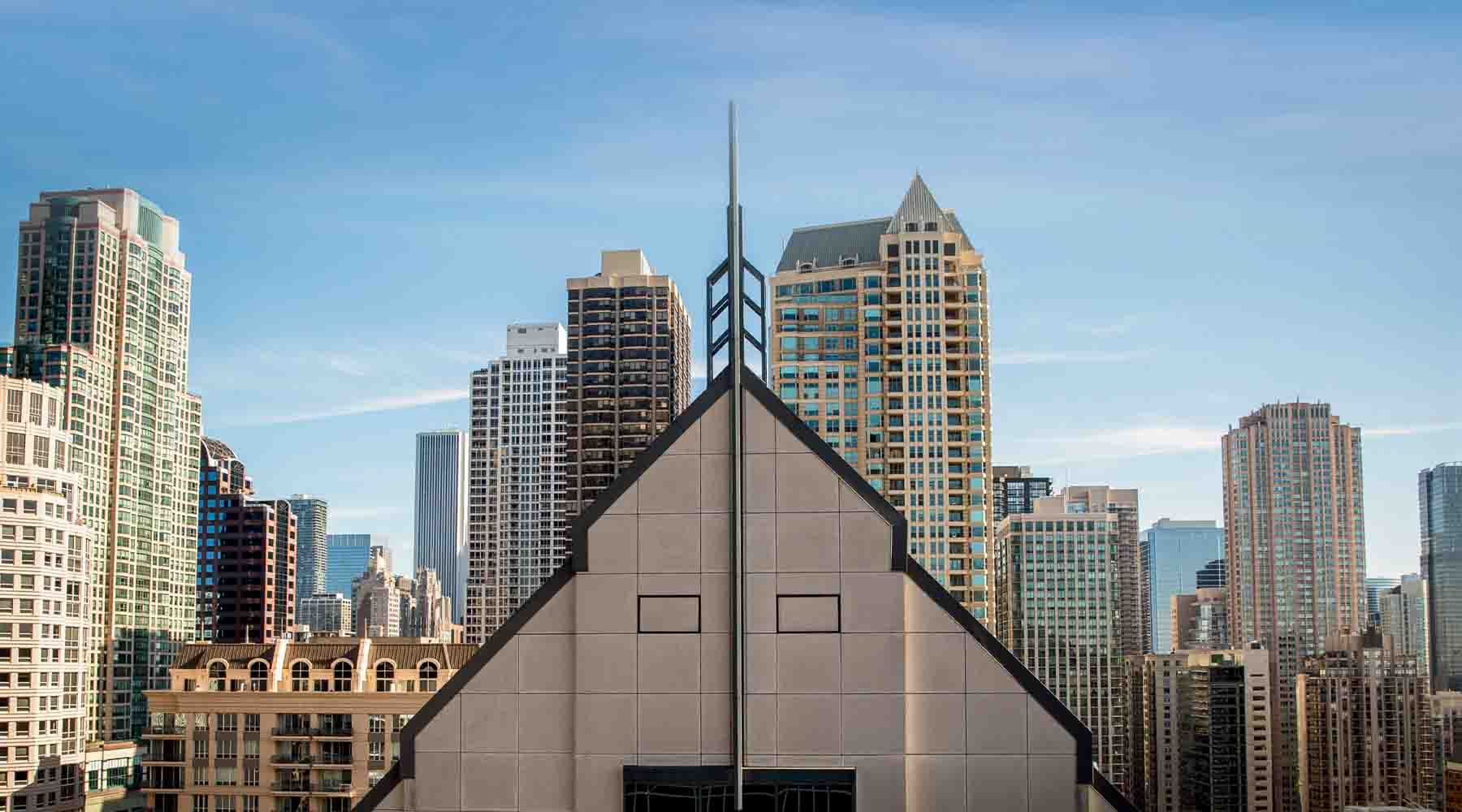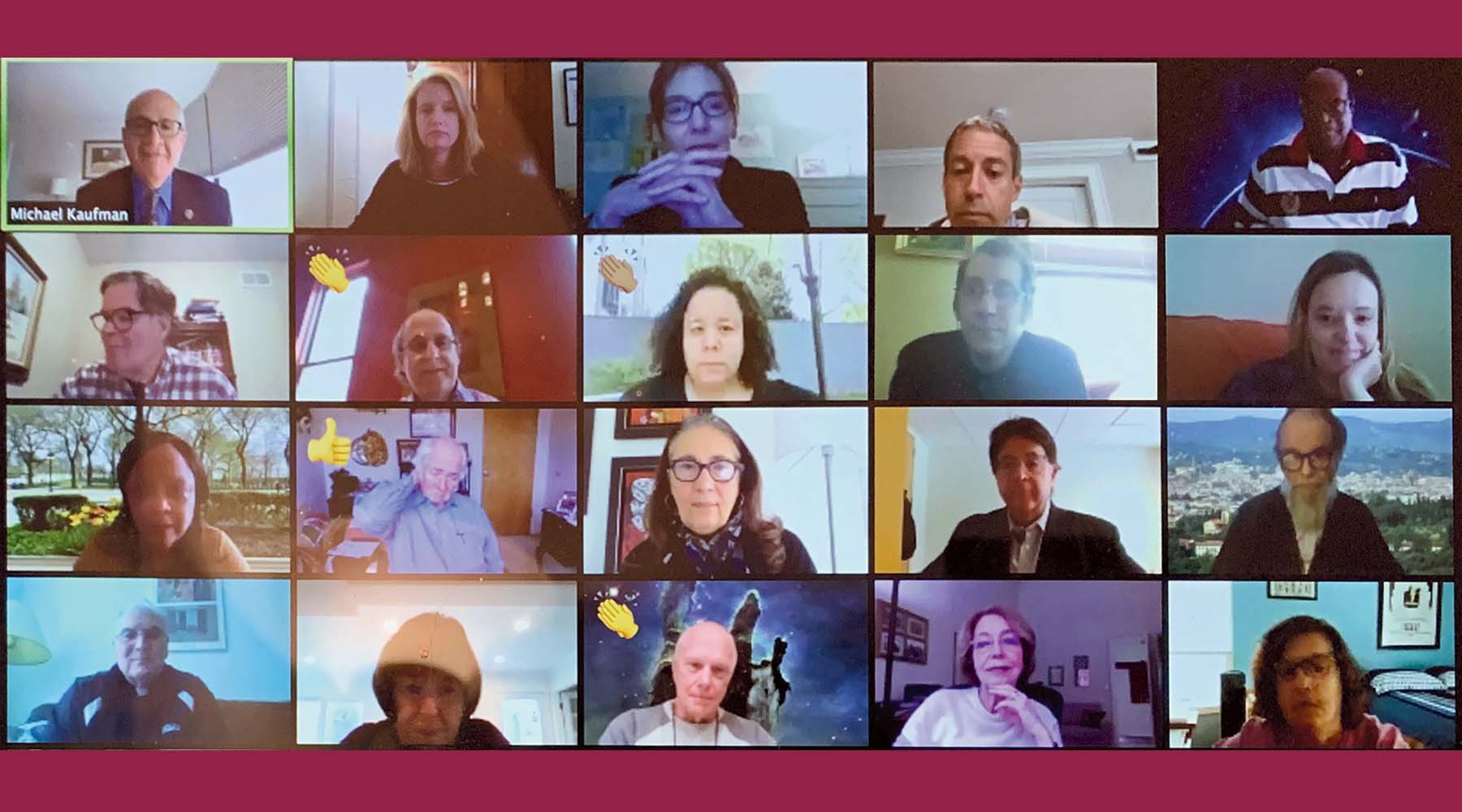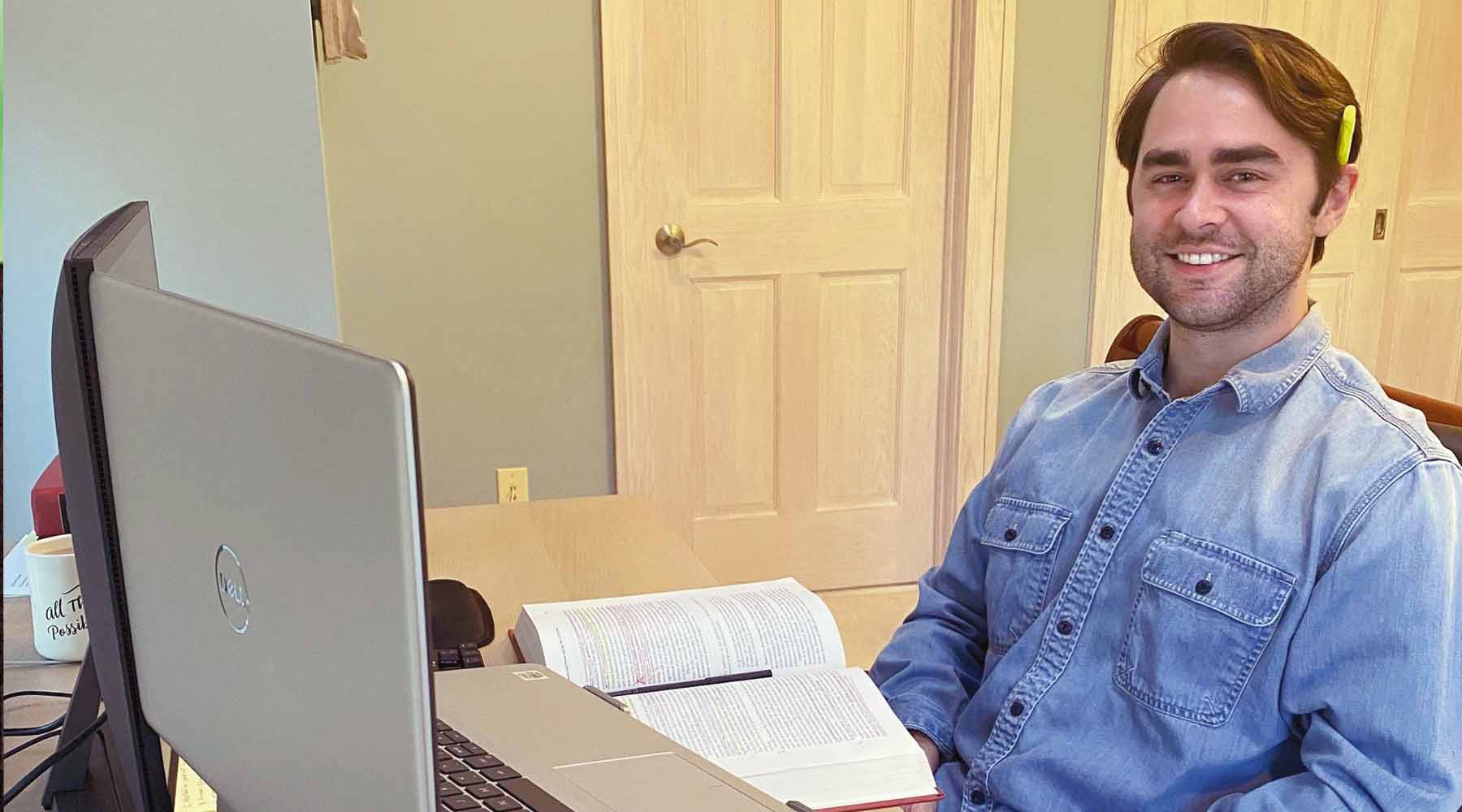
The School of Law adapts to provide the best possible educational experience amidst an evolving public health crisis
The COVID-19 pandemic has challenged the way we all work, learn, and socialize. When lockdowns went into place in March 2020, the School of Law’s longstanding leadership in remote education allowed it to quickly bring instruction and student support online. In the months since, the law school has further improved, expanded, and refined its approaches as a virtual learning community. Here, Loyolans share their insights on lessons learned during the first year of the pandemic.
1. Adjust academic approaches
Focusing on two guiding principles—first, the health and safety of the entire Loyola law community, and second, the continuity of academic programs—faculty rapidly shifted to what Assistant Dean for Graduate and Online Education Lindsay Dunbar calls “emergency remote pedagogy” to finish out the spring 2020 semester. For those first few weeks, most faculty members taught classes through the videoconferencing service Zoom.
Over summer 2020, when it became apparent that classes would remain off campus in the fall, Loyola’s deep bench of online education experts trained their colleagues to go beyond Zoom and learn to use Sakai, the learning management system the law school has used for years in its onlineand hybrid programs. “We encouraged professors to build their home sites—sort of like their classrooms—on Sakai, which embeds Zoom and can house recorded classes, announcements, assignment details, syllabi, and exams,” Dunbar says. Sakai can also host breakout sessions for live negotiations, comment-and-respond voice threads, polls, faculty tutorials and teaching tips, and more.
From the beginning, Zelda Harris, then associate dean of academic affairs, and Barbara Youngberg, academic director of online programs, were particularly helpful in getting other instructors up to speed. “At first, some faculty members showed resistance grounded in the fear of not doing a good job,” says Youngberg, who continues to help her colleagues one-onone. “Our first goal was to get them to feel comfortable with technology.”
By summer, she says, the “coalition of the willing” began learning the more advanced tools in Zoom and Sakai. “There were some really nice ‘Aha!’ moments of people going from resistance to real appreciation and embrace of what we were doing,” Youngberg says. “More and more, I see our faculty challenging themselves to use the technology in new ways. That’s gratifying—I always say that once you become a good online teacher, you will be an even better on-ground teacher.”

The Loyola law community switched over to Zoom meetings to safely finish the spring 2020 semester
2. Communicate
"In this situation, you cannot communicate too much—and in every modality possible,” says then-dean Michael Kaufman. “We’ve learned, for example, that while emails are still important, we also need to communicate through our strong website presence, daily announcements, video, and social media. What works is multiple media to multiple stakeholders in multiple ways of engagement.”
Even with this multipronged effort, the challenge continues. Says Harris, “Many of us had been relying on word of mouth, in some measure, as a communication strategy—which only works when people are in the building and running into each other. This year, the communication has had to be very intentional. We’ve learned we still need to get more information out and do it more frequently—even when we get back to campus. And students’ voices are part of it. It’s not just us providing them with information. We’ve got to listen to concerns from the students, and they need to hear from each other.”
With donations from faculty, staff, students, alumni, and friends, the law school created an emergency relief fund that addresses students’ needs.
3. Offer extra help
“For many students, the pandemic didn’t change their food security or ability to pay the rent or even their comfort levels. But for other students, it did,” Kaufman says. With donations from faculty, staff, students, alumni, and friends, the law school created an emergency relief fund that addresses students’ housing, technology, and dependent care needs—“whatever students need to give them space to learn,” Kaufman says.
Beyond providing key financial help, the law school has gotten creative with career assistance in a world defined by social distancing. Building on the Bridge Program established during the last recession, the Office of Career Services worked with alumni and employers to offer micro-internships, miniexternships, public interest stipends, clinical fellowship programs, graduate degree tuition reduction, apprenticeships in COVID-19 response industries, and other ways of providing students with critical work experience or employment.
4. Adapt for alumni
“A big lesson we've learned : Virtual programming really does work for our alumni,” says Tonya Romin, director of advancement and alumni relations. After surveying alumni volunteers, Romin’s team discovered that busy attorneys sometimes prefer remote gatherings to on-campus events. Alumni Relations hosted several well-attended virtual events, including three continuing legal education (CLE) events, the law school’s annual reunion and awards ceremony, a diversity and inclusion workshop, and the annual scholarship dinner.
Thanks to an innovative platform called Remo, event participants are able to gather in conversational groups and even “table hop,” just as they would at a conventional event. Though in-person events will resume when it’s safe, Romin believes that virtual events, like CLE, will continue to be offered in a virtual format.
“We’re trying to re-create some of the interactions that happen organically when we’re here in person.”
5. Connect Creatively
Loyolans say in-person contact is the thing they’ve missed the most this past year. Many students set up ad hoc support and study groups. “I was lucky to have been able to establish relationships on campus before the pandemic arrived,” says Karrie Virgin. “It made me more comfortable reaching out to faculty, and I have a close-knit group of friends I study with.”
Established law school cocurricular programs like pop-up yoga and mindfulness sessions have continued virtually. Regular online “Coffee with Kaufman” sessions throughout the year have been attended by students, faculty, staff, and alumni.
Staff on the Student Engagement Committee have aimed to further fill the social void— especially for first-year students who haven’t been on campus yet—with such online events as trivia nights, cooking classes, and discussions on important issues including racial justice. In an especially well-received initiative, the committee recruited faculty volunteers to reach out to 1Ls in informal, one-on-one Zoom meetings.
“We’re trying to re-create some of the interactions that happen organically when we’re here in person,” says Giselle Santibanez-Bania, assistant dean of student services. “It takes a little more work to find those moments. Some things work better than others, but we never stop trying.”
The efforts are paying off. The American Association of Law Schools recently invited Kaufman to give a presentation about Loyola’s best practices, “Maintaining Community in Times of Crisis,” at its annual convention.

Crockett Stevenson was able to continue his studies back in South Carolina during the pandemic
6. Find the silver linings
Staying positive, many Loyolans identified unique benefits to the pandemic experience. First-year student Crockett Stevenson is from the South and not yet used to Chicago winters. When he learned his classes would be remote, he based himself at his parents’ house in South Carolina for the year. Though he hasn’t taken a course on campus yet, Stevenson says the law school is making remote education “as close to the classroom experience as you can get. And, as the kind of person who liked to do all my studying on campus as an undergraduate, I’m finding online learning is more efficient and productive and opens up my schedule.”
As a 3L, Shivani Rishi was chief justice of Loyola’s moot court program. Because all tryouts, practices, and competitions were online this year, “We were able to extend offers to a couple of Weekend JD students who wouldn’t ordinarily have been able to participate,” she says. “That’s been a big plus from all of this.”
Student Puja Valera jokes that she can “roll out of bed 10 minutes before my first class and avoid going through bad weather to get to school.” With remote work gaining a stronger foothold among previously resistant law firms and other employers, “I’m hoping a big positive to come out of this experience will be improved work-life balance,” she says.
7. Look toward the future
Valera is not the only Loyolan considering the ways pandemic practices might continue once it’s safe to gather again. Discussing the new teaching techniques many instructors have adopted, Assistant Dean Dunbar notes, “Some things will stick around because they’re so useful. For instance, many faculty members have discovered that some material might be better presented in a podcast or prerecorded lecture to free up class time for more robust discussion.”
aufman notes that the group and oneon- one office hours faculty members hold on Zoom are popular with students, making student-faculty engagement “as great or better than it ever was for those students who feel more comfortable asking questions online.”
He adds, “We all have Zoom fatigue, but there are parts of the educational experience that are better than they were on the ground. The law school will have to look back and find the sweet spot, the perfect mix between in-person and online.”
Says Harris, “We’ve learned this year that we can be resilient, flexible, accommodating, and less rigid. Moving online also has clearly illuminated the life circumstances our students are dealing with.” Seeing students in their home environments, she explains, shows how many are taking care of children or aging parents, sharing crowded spaces with roommates, or facing other challenges and commitments.
“It’s a reminder that not every new student is coming directly from undergrad with no other obligation than to focus on going to law school,” Harris says, “and going forward, we’ve got to be nimbler about delivering legal education that meets the needs of people where they are.” –Gail Mansfield






